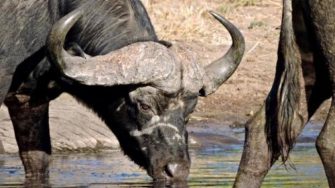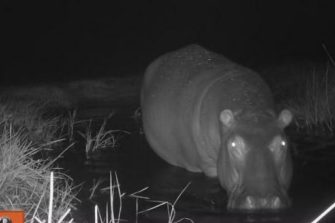
In collaboration with the organisation Elephants Without Borders (EWB), this project aims to investigate how species utilise water resources in north-eastern Botswana, an area encompassing the world-renowned Chobe National Park.
This project adds to the growing Africa-wide knowledge of how wildlife interacts and behave around water resources, as well as providing insight into a region with high levels of ecotourism and human/wildlife interaction. This study primarily focuses on large mammals and birds, with a particular interest in large herbivores. The region is also home to Africa's largest elephant population, and this project aims to address how this large population impacts other herbivore species, particularly those of high conservation risk or those sensitive to changes in competition and water availability. We are also looking into how ecotourism and human presence impacts the utilisation of water resources by wildlife, and the different variables (both natural and anthropogenic) that impact how wildlife choose and utilise water sources.
For more information on this project, please contact PhD candidate Matt Davis at matt.davis@unsw.edu.au.

